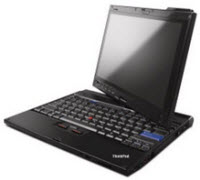Lenovo, Nvidia building convertible Windows RT tablets: Who will buy?


Lenovo, not put off by Microsoft's Surface ambitions, is rumored to be working on an ARM-powered Windows RT tablet.
The Wall Street Journal reports that industry hard-hitting Chinese PC maker Lenovo -- soon to be the world's biggest PC maker by shipments -- has partnered with Nvidia to bring to market convertible Windows RT tablets.
Nvidia will supply ARM-based Tegra 3 mobile processors to Lenovo, according to the report.
What's interesting here is not the fact that Lenovo has plans for Windows RT-based devices, or the fact that they will be powered by Nvidia processors, it's the fact that they it is rumored to be a convertible device "with a keyboard that flips around to turn the product into a tablet".
Convertible hardware is not new, but some expect that Windows 8, because of its heavy emphasis on touch, will allow OEMs to reimagine hardware and come out with new twists on old ideas (pun intended). The new twist that convertibles bring to the table is that they are a convergence of tablet and notebook, combining a touchscreen with a fold-away keyboard. The idea, it seems, is that Windows 8 will be the sales driver of these devices.
Problem is, there's never been a proven mass market for convertible devices, and there may never be one.
All of the ones I've seen -- or at least seen designs for -- come across as a clunky and awkward to use. Either the screen detaches from the keyboard completely -- making it more than likely that the keyboard is going to get left at home or the office when it's needed the most -- or you have to perform some complex origami-like maneuvers with the device to uncover or put away the keyboard.
Another problem facing these devices will come down to a single word -- compromise. It's hard to imagine how convertibles will bring the best of both a tablet and a notebook to a single device. OEMs can throw phases such as "no compromise experiences" about as much as they want, but every device and design I've seen reeks of compromise.
Another factor that no one is seriously addressing is what's going to drive sales of these devices. Will consumerization drive enterprise adoption, or will it work the other way? Given that consumers are spoilt for choice as to what to spend their money on -- iPads, iPhones, Kindle Fires, Nexus 7 tablets... and so on -- it's hard to see how these hybrid devices will get much of a look in.
Ultimately, pricing will play a massive role in determining whether Windows RT succeeds or fails, and given the rumors that licensing costs for Microsoft's ARM-based version will be between $50 and $65, it's going to be hard for these devices to compete on price next to devices such as the Kindle Fire or Nexus 7 that have a $199 price tag.
Image source: Lenovo.